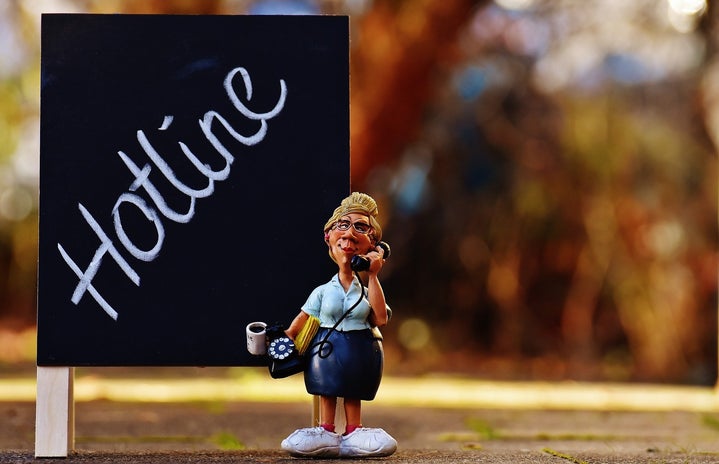One of the most difficult responsibilities an individual is tasked with is acknowledging their limitations. When I was five years old, I was diagnosed with a chronic, life-threatening disease called Juvenile Dermatomyositis (JDM). JDM is a rare autoimmune disease, similar to lupus and arthritis, in which the immune system attacks muscles, skin cells, blood vessels, and other muscular tissue, such as those involved in the respiratory and digestive systems.
Being diagnosed with JDM at a young age, I was quickly forced into a new mode of life. However, a five-year-old living a life of medications and hospital visits varies drastically from the life of a nineteen-year-old living under the same circumstances.
The college transition is difficult for many freshmen. For those of us who are chronically ill, the college transition is filled to the brim with decisions, realizations and limitations that directly impact our quality and, at times, length of life.
With that being said, and a year and a half of the “college experience” under my belt, I am here to share some top tips for surviving college while chronically ill. Now, fun fact, you do NOT have to be a member of the chronic illness crew for these tips to help you out, or at least help you better understand the struggles in the everyday life of myself and my people. Even if you are a member of the differently-abled squad, these tips might not be best for you– it’s all about understanding your body and acknowledging where you struggle versus where you thrive. It definitely takes some work, and the road to ~thriving~ is going to be bumpy as hell – but I promise you can make it, and it will get better.
It IS possible to be a successful, healthy, AND chronically-ill student, and hopefully some of these tips help make the road a little smoother:
1. Your health is always the #1 priority
Working to prioritize your health over other activities is difficult. Some nights our minds say yes to a night on the town, but our bodies say heck no. It’s important to listen to your body. If you are going out or you anticipate an impending crash, PLAN AHEAD. Make sure to take any meds necessary, do some homework in advance, grab some extra sleep a few days before… Having an illness doesn’t mean you can’t have fun, but having fun doesn’t mean you have to feel awful the rest of the week.
2. You are your best advocate
Chronic illnesses are vastly misunderstood. Whether you have an invisible illness, like me and many of the autoimmune folks, or a visible illness, your abilities and limits are specific to you. Doctors – especially if you are a young woman – may not understand your needs, professors will be reluctant to give you leeway, and friends may be confused by necessary lifestyle changes you make. YOU are the only one who fully understands your needs. Don’t be afraid to speak up. If something is wrong, don’t feel pressured to settle. Trust your gut. Work with your doctors, explain your situation to your professors, and don’t be afraid to educate your friends – the more they know, the better they can stand with you and help educate others.
3. Surround yourself with supportive people
While you are your best advocate, it sure is nice to have an army fighting with you – especially when you are too tired to fight for yourself. True friends love unconditionally; they don’t question your ability or legitimacy, they don’t put you down for saying no, they respect your limits as an individual. Life with a chronic illness is definitely different, and while different can be scary, true friends and family will stick by your side through the roller coasters we call our lives. We are often not able to do many things “normal” people might be able to do, such as go out and get smashed, hit up the gym every night, or even walk to class. While this is a frustrating realization, it is reality. Finding good people who willingly support you in your strengths and weaknesses is important.
4. SELF-CARE, SELF-CARE, SELF-CARE
Especially for those of us who have invisible illnesses, it’s easy to try and pretend everything is fine. We can act like we are fully-abled and get away with it until we drive ourselves into a flare to end all flares. Acknowledging that we can’t always do everything we want is hard, but being able to say “no” is important. If you feel awful, take a day to yourself. Feeling nasty (mentally and/or physically) is a perfectly valid reason to not go to class, ask for an extension, or ditch the peeps for a chill night in. Professors and real friends will understand. Your ability to act as a functioning human being is SO much more important than a philosophy class or another party. It’s okay to be selfish sometimes. Neglecting sleep or meals is not healthy for anyone, let alone us chronic homies.
5. Utilize the services your University offers
Coming to college, I was knocked out with the realization that I am not a full able-bodied individual. It had previously been so easy for me to rely on my parents to take me to the hospital, notice if I was showing signs of a flare, or if I was putting my health in jeopardy. My freshmen year, it took me almost three months of pretending to be okay before tentatively stepping foot in the disability services office. The disability services offered by your university, even if you are high-functioning, can be the perfect shoulder to lean on. SLU’s disability services are catered to the needs of the student, which for me involved allowing attendance flexibility and flexibility regarding timeliness or deadlines in case of medical issue or emergency. If nothing else, your school’s services will protect you from bullshit, such as professors who do not believe/recognize your ability.
6. Be honest with yourself (and others if you are comfortable)
One of the most important aspects in being an advocate for yourself and others is working to foster honest conversations. Sometimes it’s terrifying to express to friends or family members the extent of our pain. Images and fears of rejection or being treated differently flash through one’s mind like scenes from one of those suspense movies that tie your entire mind and body into winding, endless knots. HOWEVER, even though prospective conversations are often terrifying (I have even struggled in writing this article), the results are often so fruitful for everyone involved. Be honest with yourself and recognize your body’s limits. Be honest with your friends; you owe no one an explanation for how you are feeling, but willingness to have a conversation will often open doors for others to better understand your struggles. Be honest with your professors; it will be worth it in the long-run. Not only will professors be more accommodating of your needs, but you will also have an incredible opportunity to make some lasting connections in the academic field. Plus, if they are jerks to you, you always have the Americans with Disabilities Act of 1990 to back you up. They can’t really argue with that, amiright?
7. There ARE people who “get it.” Find those people and hold on tight.
Having a chronic illness is lonely. There is no sugarcoating the feeling of being labeled a “sick kid,” and there is no perfect way to express the physical, mental, and emotional pain one endures. There are mornings I can’t get out of bed, and there are nights I can’t walk to get dinner. There are days I am so exhausted I sleep more during the day than the night, and there are days I’m in too much pain to sleep at all. It is so damn lonely to sit in a life of chronic pain, medication, hospitalizations, misunderstandings, doubts, uncertainties of the future, limitations, and the list goes on. But, while we may be lonely at times, we are never alone. Our ~sickly~ family extends past what the eye can see (literally past what the eyes can see because half of our illnesses are invisible). Finding people who understand, who have endured similar challenges, who REALLY get it, is like finding the most precious breath of fresh air, quenching the thirst to be heard that so few truly experience. Whether you find them while sitting in an audience for their presentations or in the basement of Marguerite Hall, sitting on top of a rattling washing machine – they are there. And we are all bound tightly together, connected by a force too strong to express.
Our lives are nowhere near normal. And neither are we. But that’s what makes us so badass.
If you would interested in learning more or grasping a better understanding of a day in the life of someone with a chronic autoimmune disease, check out the one and only Spoon Theory or feel free to shoot me a DM (Facebook: Ashley Gomel).


